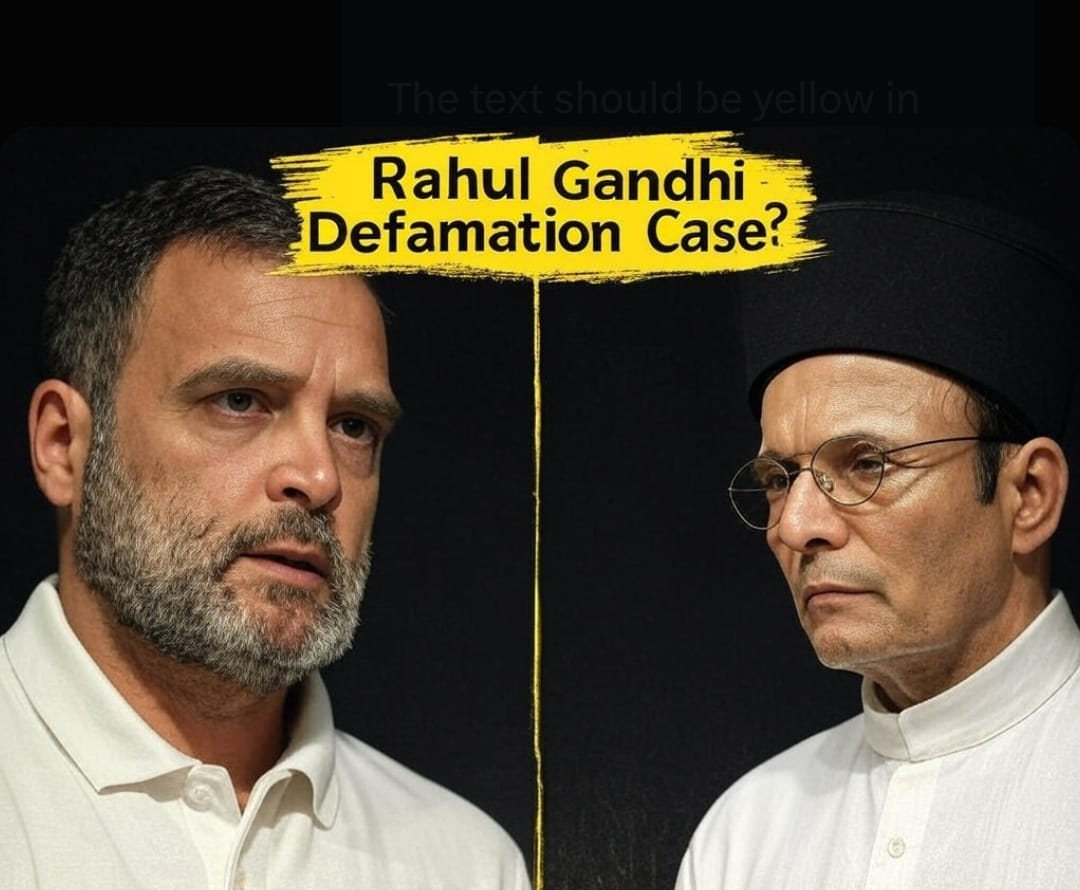The Lucknow Bench of the U.P. High Court recently refused to grant any relief to the Congress leader Rahul Gandhi owing to his alleged defamatory remarks over Veer Savarkar. The comments in question were made during a rally in Akola, Maharashtra, on November 17, 2022, while Rahul Gandhi was leading the Bharat Jodo Yatra.
The case has stirred up a blend of political, historical, and legal debates—and it’s not hard to see why.
What Did Rahul Gandhi Say?
At the rally, Rahul Gandhi made some pointed remarks about Savarkar’s role during British rule. He reportedly said:
“My name is not Savarkar. My name is Rahul Gandhi. I will not apologize. Savarkar wrote mercy petitions to the British and accepted pension.”
This wasn’t an off-the-cuff remark either—Gandhi repeated similar statements more than once during the Yatra, criticizing Savarkar’s alleged compromises with the British and contrasting them with his own stance on various issues.
Since then, the quoted statements were broadcast across several platforms and sure enough caught the eyes of the Global Media, and thus, has led to widespread outrage against the leader followed by legal actions.
Where It Started and Where It Is?
The legal action arose when advocate Nripendra Pandey filed a complaint against Rahul Gandhi for defaming a national hero and stirring up public mischief.
The complaint has invoked Sections 153A (promoting enmity between groups) and 505 (statements conducive to public mischief) of the Indian Penal Code. The argument presented was that Rahul Gandhi’s statements weren’t just historical criticism but were meant to insult and defame Savarkar intentionally, in a manner likely to cause unrest.
Initially, the Additional Chief Judicial Magistrate dismissed the complaint, saying there wasn’t enough ground to proceed. But things changed when Pandey filed a revision petition before the Sessions Court. The court found that there were “important questions of law and fact” involved and came to an opinion that the case deserved a closer look.
As a result, Rahul Gandhi was summoned to appear before the court on January 10, 2025. However, citing the reason for official duties, he didn’t appear before the Court, and instead his lawyer requested an exemption from personal appearance—but the court didn’t budge and imposed a fine of ₹200.
The next hearing is now scheduled for April 14, 2025.
What Did Rahul Gandhi’s Legal Team Say?
Rahul Gandhi’s lawyer, Pranshu Agarwal, argued that the complaint was legally weak. He said the statements made during the rally didn’t qualify as offences under Sections 153A or 505. He also pointed out that under Section 196 of the CrPC, a prior government sanction is required to prosecute someone for promoting enmity between groups—a necessary safeguard that had been skipped.
Still, the High Court didn’t get into the nitty-gritty of these arguments. Justice Subhash Vidyarthi kept it procedural and stated that Rahul Gandhi still had the option to file a revision petition before the Sessions Court. So, for now, the High Court sees no reason to intervene.
Why Does This Matter?
The case isn’t just a court case—it revolves around convoluted issues of conflicting dominions of free speech, political accountability, and how India remembers its past.
Savarkar remains a polarizing figure. While the supporters see him as a brave freedom fighter, the critics accuse him of compromising with the British and promoting a narrow brand of nationalism. And when a public figure like Rahul Gandhi speaks critically about Savarkar, it inevitably draws fire from the opposing end of the political spectrum.
From a legal point of view, the case raises questions about how far the law can (or should) go in regulating political speech. Is it defamation if a politician critiques a historical figure? Can historical interpretation be criminalised if it offends certain groups?
What’s Next?
The matter as of now rests with the trial court, which will take it up again on April 14. Meanwhile, Rahul Gandhi’s legal team may pursue a revision petition in the sessions court based on the suggestion by the High Court.
Until then, this remains another politically charged case where law, legacy, and leadership collide. Whether it sets a precedent or fades into the long list of political litigation remains to be seen.
KEYWORDS: Rahul Gandhi, Savarkar Defamation Case, Bharat Jodo Yatra, High Court
References:
About Author

Tanishq, a law student at the Department of Legal Studies and Research, Barkatullah Vishwavidyalaya, Bhopal, is a budding legal writer with a sharp eye for evolving legal landscapes. Passionate about Intellectual Property Rights, Constitutional Law, and Women and Child Safety Laws, Tanishq actively explores contemporary legal nuances through writing and research.

